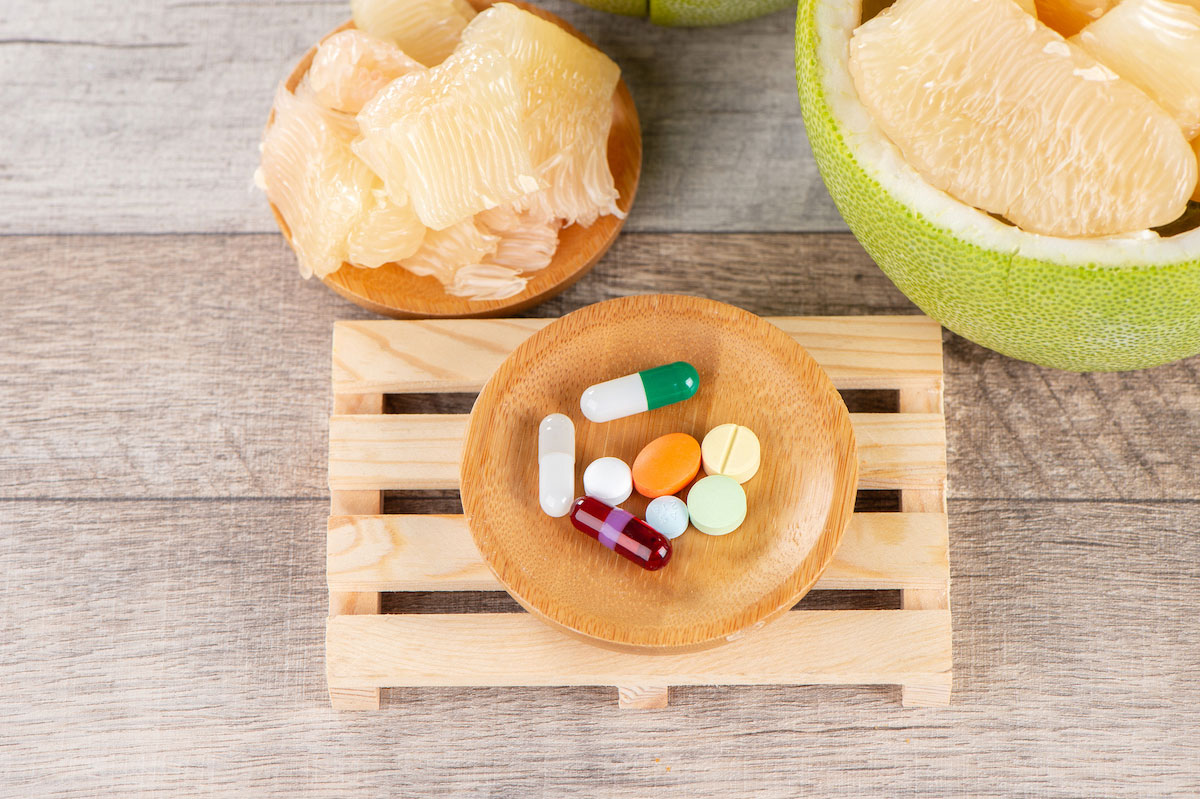Eating “right” takes on a whole new meaning when you understand how medications might interact with certain foods – making them more or less potent or causing unsafe reactions.
According to Jasmine Chen, pharmacy resident at Hartford Hospital, it’s important to talk to your prescribing doctor or the pharmacist about food interactions with your medication so you can get the full desired effect from each dose.
She noted how the following foods interact with medications:
- Grapefruit, both the fruit and the juice, change how certain cells in the gut absorb and move medication through your body. It makes some, like Allegra (fexofenadine) for allergies, less effective while making others, like Lipitor (atorvastatin) to control cholesterol, too strong.
- Milk can make it harder for your body to process some antibiotics as it contains such minerals as calcium and magnesium and the protein casein.
- Licorice, although often taken as a digestive aid, contains the chemical glycyrrhizin which can weaken the effect of drugs like cyclosporine, taken by organ transplant patients to prevent their bodies from rejecting new organs.
- Dark chocolate can lessen the effect of drugs like Ambien (zolpidem tartrate), used to calm or help you sleep, while boosting the power of stimulants like Ritalin (methylphenidate). Also, if you take an MAO inhibitor for depression, it can make your blood pressure dangerously high.
- Alcohol can make certain drugs, including some taken for blood pressure and heart conditions, less effective, while making others stronger or causing potentially dangerous side effects.
- Coffee can weaken antipsychotic drugs like lithium, yet boost the impact of others such as clozapine, epinephrine and albuterol. It can also make it harder for your body to take in and use iron.
- Green, leafy vegetables (Vitamin K) – found naturally in such foods as broccoli, Brussels sprouts, kale, parsley and spinach – can make the blood thinner Warfarin less effective and put you at a higher risk of a dangerous blood clot.
- Ginseng may also lessen the effects of Warfarin while enhancing the bleeding risks of heparin or aspirin, or nonsteroidal anti-inflammatory drugs like ibuprofen or naproxen. If you take MAO inhibitors, ginseng can cause headaches, sleep problems, hyperactivity and nervousness.
- St. John’s Wort can decrease the effects of medications like Altoprev and Mevacor (lovastatin), Viagra (sildenafil) and Lanoxin (digoxin) by changing liver proteins.
- Ginkgo Biloba can weaken the effect of such seizure drugs as Carbatrol, Equetro and Tegretol (carbamazepine), and Depakene, Depakote and Stavzor (valproic acid).
“It’s important that the medication you take works exactly as your provider intends it, so understanding food and drink interactions is key to maintaining health,” Dr. Chen said.


